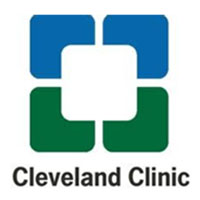 Cleveland Clinic Foundation launches affordable workforce housing project
Cleveland Clinic Foundation launches affordable workforce housing project
STORY BY LISA ZAHNER (Week of August 28, 2025)
Cleveland Clinic Foundation is evaluating a short list of developers to construct affordable workforce housing on nearly 14 acres of property donated to the hospital on U.S. 1 between The Antilles and Grand Harbor.
The nonprofit foundation, which owns and operates Cleveland Clinic Indian River Hospital, hopes to help make the housing that would be built on the site more affordable – both for its own employees and other local workers – by selling the land at a deep discount to a chosen developer. The property was donated to the foundation by the George M. Mathew and Lourdes M. Mathew Family Trust in 2023.
And why would Cleveland Clinic, the county’s second-largest employer with more than 2,000 caregivers on staff, not limit the housing to its own employees?
“The RFPs are being considered with the broader Indian River community in mind. While the hope is that eligible Cleveland Clinic employees will also benefit, this initiative is designed to support and enhance the well-being of the entire community,” Cleveland Clinic spokesperson Raquel Rivas said last week.
The success of the county’s largest hospital, after all, depends on the area having a thriving local workforce.
“We are excited to contribute to the growth of Indian River County and offer land to support future housing for our growing community,” said Cleveland Clinic Indian River Hospital Vice President and Chief Medical Officer Dr. Richard Rothman.
Vero’s hospital has been plagued with recent annual operating losses ranging from $48 million to nearly $70 million. The biggest single factor in the hospital’s bottom line is Indian River County’s demographics.
A full 70 percent of patients seen are on Medicare. Another 12 percent are on Medicaid, uninsured or unable to pay. Medicare and Medicaid reimbursements cover only a fraction of the cost of patient care.
That leaves only 18 percent of patients younger than 65 with commercial health insurance through their jobs. Private health insurance payments are significantly higher and help the hospital offset Medicare and Medicaid losses.
“Indian River County faces a significant need for workforce housing, with the average household income not being sufficient to afford new home developments,” states the Cleveland Clinic request for proposals quietly published a month ago.
“The National Low-Income Housing Coalition estimates the county is about 20,000 units below what is needed. The county is working to address this need through various initiatives, including affordable housing incentives, grant programs, and partnerships.”
Cleveland Clinic hopes to move rapidly, closing on the land in October and requiring all units to be move-in ready in 24 months or less.
The RFP does not dictate whether the workforce housing, which will be just four miles or eight minutes from the hospital, will be rented, owned, a mix of the two, or perhaps even rent-to-own. That will depend on the vision of the winning developer proposal. The RFP allows for a mix of single-family and multifamily housing as well, so residents could get married or expand their families and grow into larger homes within the community.
The two parcels with U.S. 1 frontage in the 6100 block between Vero Beach and Wabasso in unincorporated Indian River County are currently zoned for multifamily residential homes up to three per acre. County officials would presumably look favorably on upping that density for an attractive workforce housing community backed by the hospital.
“A survey of Cleveland Clinic caregivers with focus groups may be conducted after firm selection to support the Workforce Housing development,” the RFP states. “It is Cleveland Clinic’s intent to ensure that the Subject Property is developed with quality interior and exterior designs, materials, and workmanship.”
“Cleveland Clinic supports using local contractors, subcontractors, and suppliers wherever possible for the benefit of the community,” the RFP said.
Cleveland Clinic has not discussed the project in detail with local officials, but County Commission Chair Joe Flescher did confirm he was given an informal “heads up” a couple months ago that the RFP was going out.
County Hospital District Trustee Paul Westcott was not aware of Cleveland Clinic launching a workforce housing community, but praised the effort, advocating for owned homes above rentals.
“Really everybody in the county needs to be saying what can we do to build up private home ownership because it builds your community,” he said, thanking Cleveland Clinic for proactively tackling one aspect of the hospital’s recruitment and retention challenges to help bring down labor costs. “That revolving door is so expensive, and particularly expensive for them,” Westcott said.
Westcott said this Vero-centric workforce housing is exactly the type of ultra-local initiative he was hoping to see once Rothman, a long-time Vero Beach resident, took the planning reins from Cleveland Clinic’s corporate offices in Weston and Cleveland.



